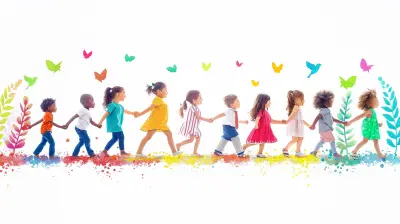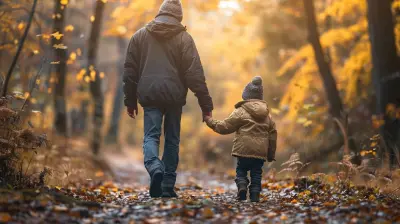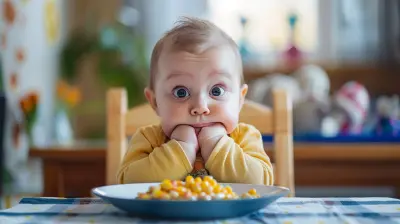How to Cultivate Resourcefulness in Kids
7 July 2025
Let’s be honest—parenting isn’t easy. You're juggling work, wiping up spilled juice, and trying to raise a kid who can think for themselves? That’s a tall order. But what if I told you that one of the most important life skills—resourcefulness—is not just teachable but can be made fun too? 🎯
In today’s unpredictable world, where change is the only constant, raising kids to be resourceful is one of the greatest gifts you can give them. It’s not just about being “clever” or “smart.” It’s about being adaptive, creative, and confident when life throws a curveball.
So grab a cup of coffee (or cold tea—we know how that goes) and let’s dive into how to cultivate resourcefulness in kids. You’ve got this. 💪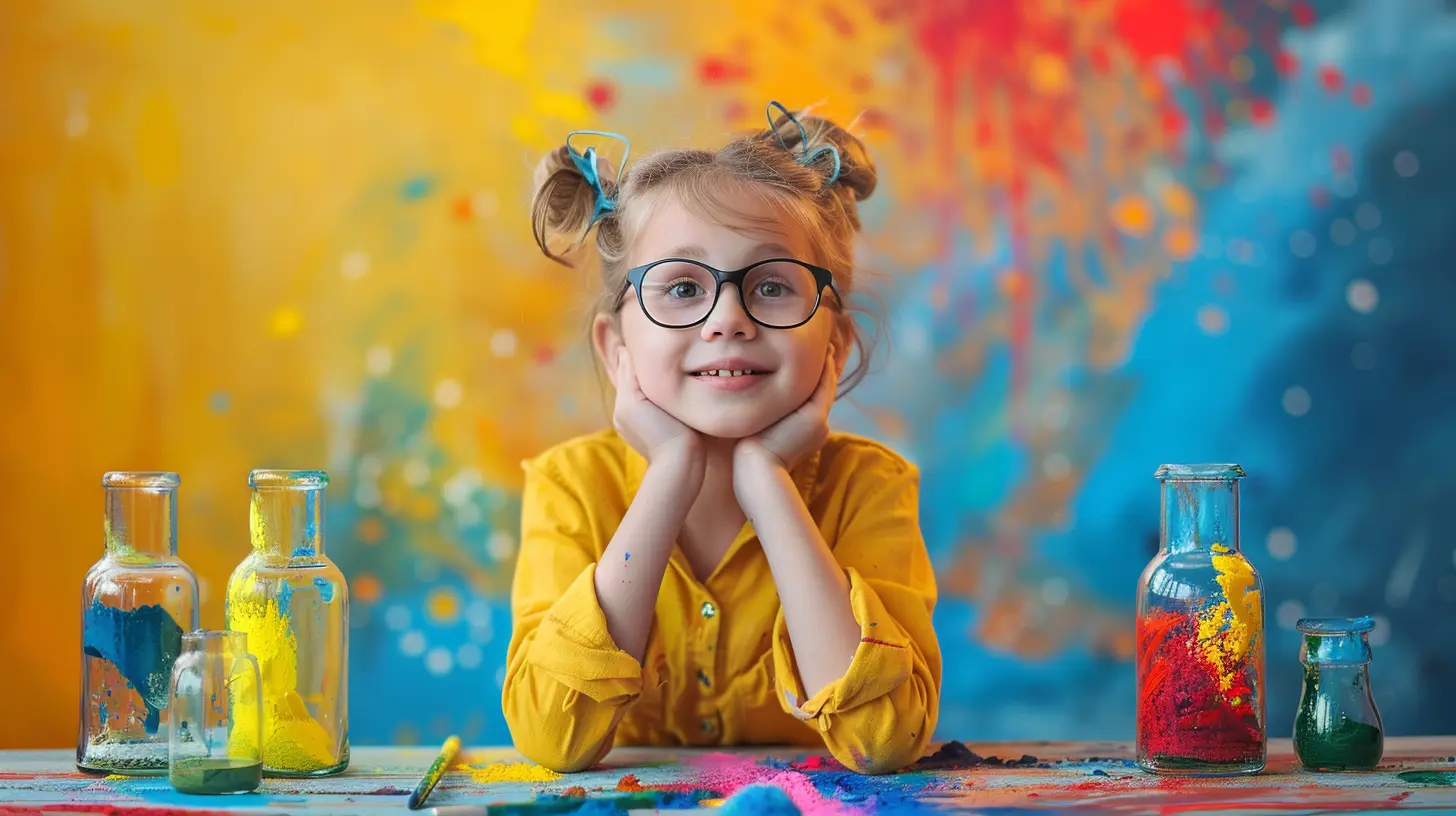
What Exactly Is Resourcefulness (And Why Should You Care)?
Think of resourcefulness as your mental Swiss army knife. 🛠️ It’s the ability to solve problems, adapt to new situations, come up with alternatives, and push through challenges. It’s not just about survival—it’s about thriving.When kids are resourceful, they:
- Solve problems without always asking for help
- Bounce back from failures quicker
- Think creatively and independently
- Trust themselves to figure things out
Sounds pretty awesome, right? And the best part—it’s not inborn. It’s built. That’s where you come in.
Start With Letting Go (Yes, Really)
Here’s the deal: kids can’t become resourceful if they never face situations that require resourcefulness.We all want to swoop in like Supermom or Dad-of-the-Year when our kids struggle. But sometimes? You’ve got to zip it and step back.
Next time your child can’t figure out a toy, don’t jump in. Ask:
👉 “What do you think you could try?”
👉 “What’s another way to make it work?”
You're not abandoning them—you’re giving them the chance to flex their problem-solving muscles.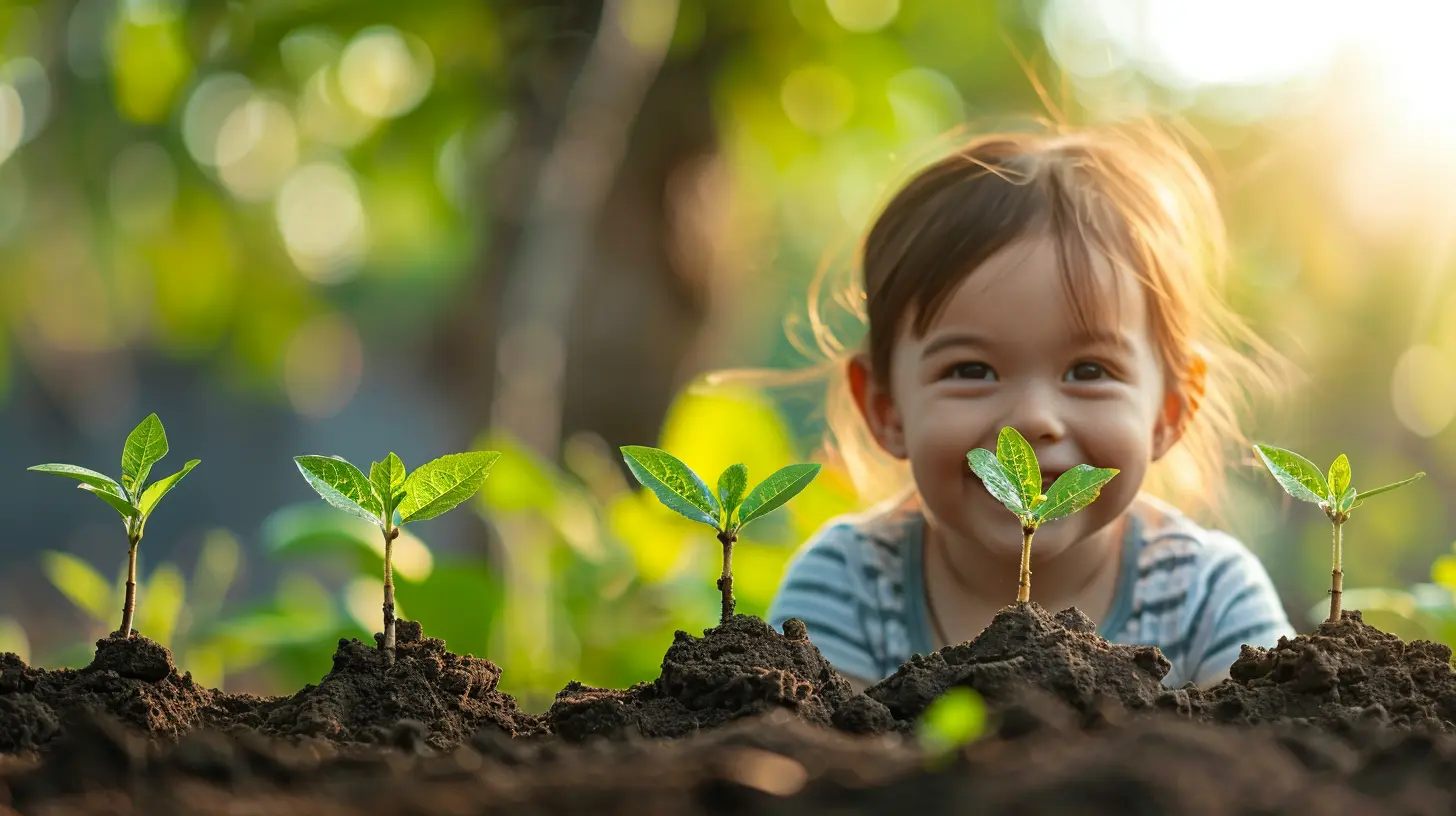
Normalize Mistakes as Part of the Process
Let’s be real—nobody likes messing up. But mistakes? They’re like weights for building mental muscle.If your child is afraid to fail, they won’t take risks. And without taking risks, there’s no learning how to work through problems.
Try this:
- Share your own goof-ups and what you learned
- Avoid punishing failure—focus on effort and creativity instead
- Praise their persistence, not perfection
Remember, every inventor had to mess up 1,000 times before something worked.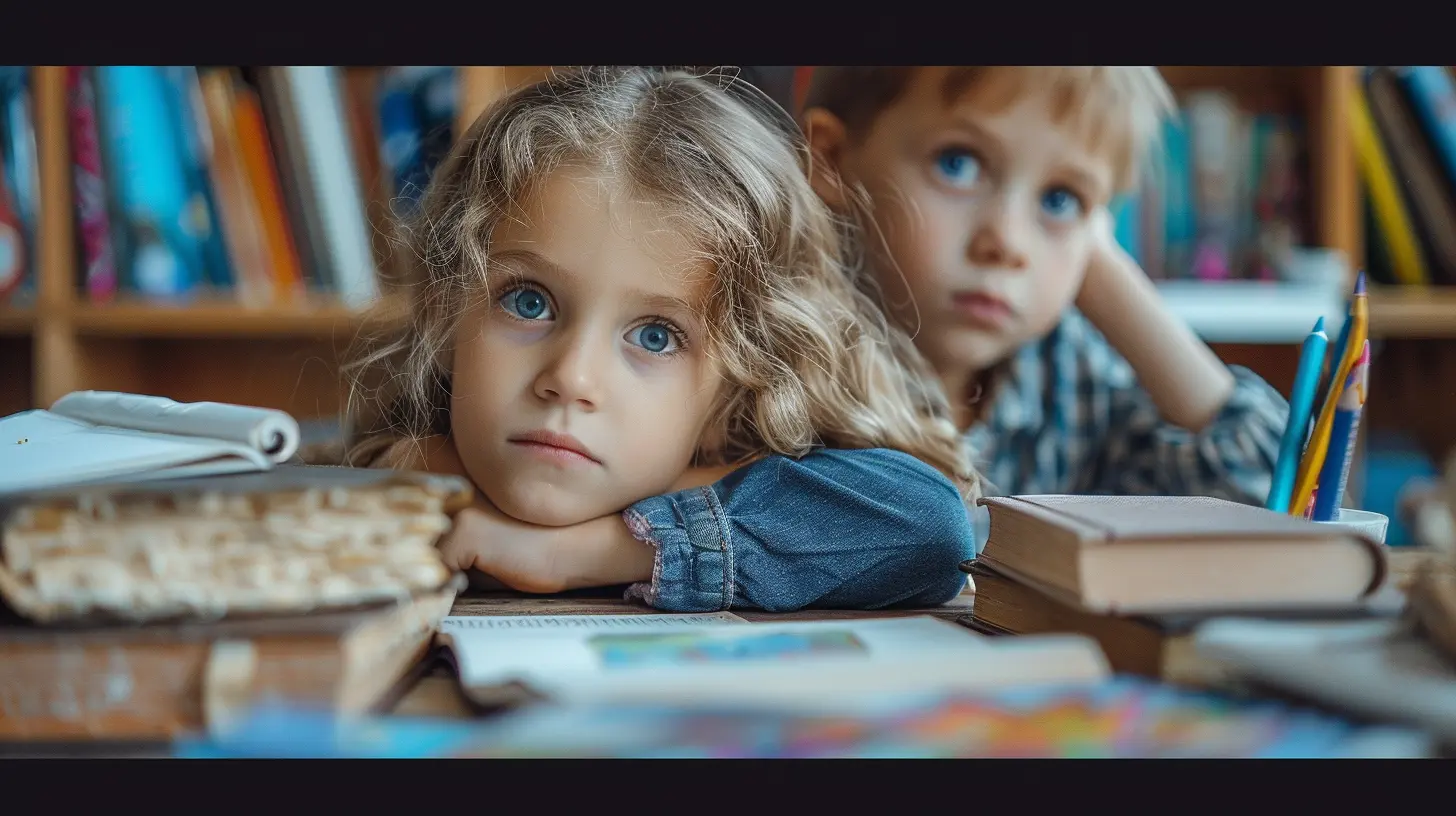
Encourage Curiosity (Even When It’s Inconvenient)
Yes, it’s exhausting to answer “Why?” 78 times a day. But those relentless questions? They’re gold.Resourcefulness is fueled by curiosity. So, instead of shutting it down, try to lean in.
Ways to build curiosity:
- Visit new places (a park or museum counts!)
- Prompt open-ended questions: “What do you think would happen if…?”
- Try mini-experiments—water and oil, baking soda and vinegar…the classics still rock.
Kids who explore and ask questions become adults who figure stuff out.
Teach “Plan B” Thinking
Let’s say you’re making cookies and realize you’re out of eggs. What do you do? Probably Google the best substitute and move on.That is plan B thinking.
You can teach kids this too:
- Let them come up with backup plans when things go wrong
- Play “What If” games: “What if the power goes out while we do homework?”
- Encourage them to find 3 solutions to a simple problem
They’ll start seeing obstacles as detours—not dead ends.
Use Role-Playing to Build Problem-Solving Muscles
Kids love pretending. Use that to your advantage.Make up silly scenarios like:
- You’re stranded on a desert island. What would you build first?
- Your pet dragon won’t eat its breakfast—what now?
- Your spaceship lost power—what can you use to fix it?
This encourages flexible thinking, creativity, and adaptability. Plus, it’s super fun, and you’ll probably learn something too!
Introduce Age-Appropriate Responsibility
Let’s talk chores. Yep, chores build resourcefulness.When kids take responsibility for a task—like packing their own school lunch—they learn planning, decision-making, and managing consequences.
Start small:
- Let them choose clothes (yes, even if they don’t match)
- Put them in charge of watering plants
- Have them help make a grocery list
Even simple tasks build confidence. Confidence leads to independence. Independence fuels resourcefulness.
Model Resourceful Behavior Yourself
Monkey see, monkey do.If you’re constantly complaining, giving up easily, or avoiding challenges—guess what your child learns?
But if you:
- Tackle problems head-on
- Stay calm under pressure
- Talk through your thinking out loud
You’re showing them how to be resourceful, not just telling them.
Say things like:
- "Hmm, the car won’t start. Let’s think—what could we check first?"
- “We don’t have wrapping paper. Maybe we could use art they made?”
You're basically a real-life tutorial.
Celebrate Ingenuity—Not Just Results
Let’s stop clapping only when the kid gets the right answer.Instead, celebrate:
- That weird drawing of a “robot dog that mows lawns”
- Solving a puzzle in a totally unexpected way
- Using a box as a rocket ship
This tells your child: 💡 “Being clever and creative is cool, even if it’s not perfect.”
Use Books and Media That Highlight Resourcefulness
The stories our kids hear shape how they think.Look for books, shows, and characters that:
- Solve problems on their own
- Use creativity and grit
- Celebrate resilience
Some great examples:
- Rosie Revere, Engineer
- Ada Twist, Scientist
- The Magic School Bus
- MacGyver (for older kids)
Stories are like mirrors—they help kids see what’s possible, and what they can become.
Encourage DIY and Tinkering Projects
There’s magic in building things with your own two hands.You don’t need a fancy workshop. Just gather some basic supplies:
- Cardboard
- Tape
- Old clothes/fabric
- Glue, sticks, recycled containers
Then say: “Build whatever you want.”
Watch as your child turns nothing into something. That’s resourcefulness in action.
Bonus: They’ll also learn patience, planning, and how to clean up messes (hopefully 😅).
Let Them Struggle a Bit (That’s Where Growth Happens)
Ever watch a butterfly struggle out of a cocoon? If you help, it can’t fly. Same goes for kids.When you let your child wrestle with a problem, they build endurance, creativity, and belief in themselves.
It’s okay to feel uncomfortable watching them struggle. But remind yourself—this is where the magic happens.
Create a Safe Space to Take Risks
If your child fears your reaction, they’ll avoid trying new things. That kills growth.Make your home a space where:
- Creativity is encouraged
- Failing is normal
- Effort is valued more than outcome
Cheer them on when they try something new—even if it flops. Say:
- “I love how brave you were to try that!”
- “Tell me what you learned!”
- “What would you do differently next time?”
Building this kind of emotional safety is like laying the foundation for skyscraper-sized confidence.
Reward Effort Over Outcome
This one’s big.If we only praise results—grades, wins, achievements—we miss the journey. And guess what? Resourcefulness lives in the process.
Praise things like:
- Trying again after a setback
- Finding a creative workaround
- Staying calm and thinking it through
Use phrases like:
- "That was a smart way to approach it."
- "You didn’t give up, I’m proud of that."
- "I love how you figured it out on your own."
This helps your kid internalize that effort and creativity matter more than getting it right the first time.
Final Thoughts: It’s a Marathon, Not a Sprint
Listen, parenting is a long game. You’re not going to send your kid out tomorrow as the next MacGyver or Marie Curie. But every little encouragement, every “you got this,” every problem you let them solve on their own—it’s building something huge.Resourcefulness isn’t a switch you flip. It’s a fire you slowly fuel.
So next time they say, “I don’t know what to do,” try asking:
👉 “What do you think might work?”
Give them space. Give them tools. Give them belief.
You’re raising a problem-solver. And in today’s world? That’s pure gold.
all images in this post were generated using AI tools
Category:
Life Skills For KidsAuthor:

Maya Underwood
Discussion
rate this article
2 comments
Lisette Howard
Empowering our kids to be resourceful nurtures creativity and resilience—essential skills for life. Let them explore, problem-solve, and thrive!
November 23, 2025 at 4:21 PM

Maya Underwood
Absolutely! Encouraging exploration and problem-solving fosters creativity and resilience, equipping kids with vital life skills.
Enid Ward
Great tips! Encouraging independence and problem-solving in kids fosters creativity and resilience—essential skills for navigating life's challenges. Thanks for sharing!
July 14, 2025 at 3:16 AM

Maya Underwood
Thank you for your thoughtful comment! I completely agree—fostering independence is key to helping kids thrive.
